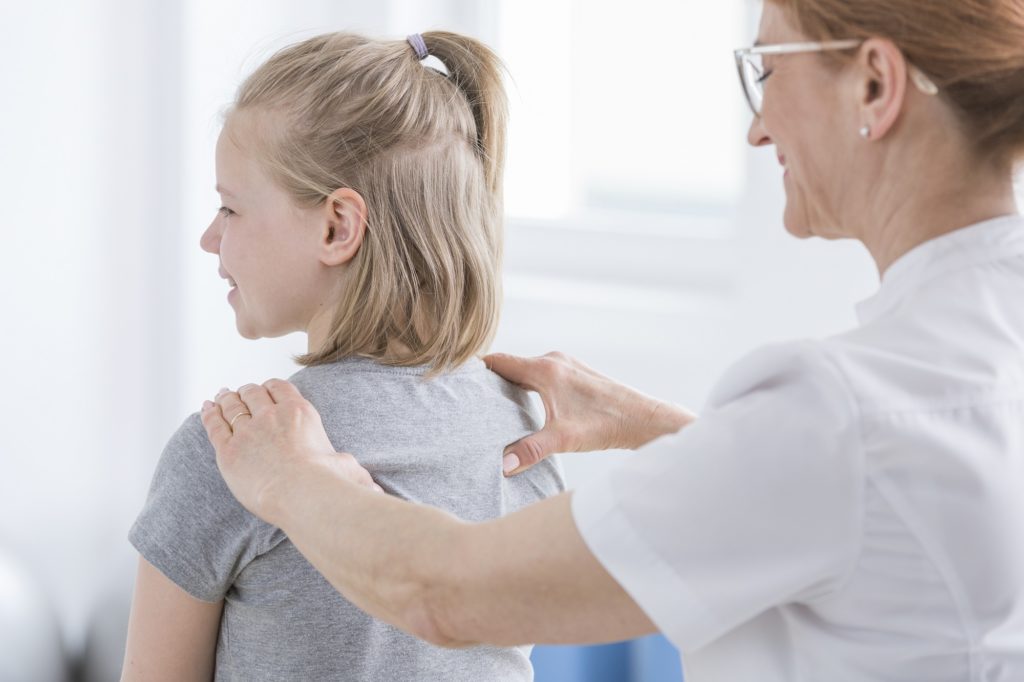Earlier this month, I mentioned Child Health Day in a post I wrote about the importance of starting healthy habits from a young age. Well, I’m just not sure that one day alone gives our children’s health the attention it truly deserves. This generation of kids is going to be responsible for taking care of us as we get older, so perhaps we should acknowledge the obstacles they face to their own health that could prevent that from happening.
Writing about the health of our nation’s children, Dr. Russell Schierling points out that future generations will experience the inevitable repercussions of our current obesity crisis at a much younger age than previous generations ever thought possible. The way I see it, these are the top three things that endanger our children’s health:
#1. Screens
Of course, technology has taken us giant leaps forward in many aspects of life. But this has come at a glaring price—because of screens, our kids have literally come to a screeching halt, no longer getting outside and moving their bodies like they used to. But we humans are built to move. A lot.
These days, though, it seems we hardly need to move a muscle. If you have a question, there’s no need to get off of the couch and find an encyclopedia. If you need directions somewhere, there’s no need to run out to the car for the atlas. All you have to do is type a few words into that handheld device that’s never too far away and let the cyberworld take care of the rest. The only thing you’ve moved is your thumbs, which doesn’t really qualify as cardio.
Screens are also leaving our kids with less-than-ideal social skills. They no longer need to chat with their buddies on the landline, and most kids I know don’t even use their cell phones like a traditional phone. They communicate with each other through snapshots and brief captions. Is the ability for people to have a back and forth conversation about to become obsolete? Lack of connection has some very serious repercussions.
Create some house rules that balance screen time with outside-in-the-sunshine time. Make sure they get some fresh air. And, for the love of Pete—make sure there’s a house rule about handing over their phones by a certain time each night, at least during the school year. They can catch up with their friends after they’ve had a good night’s sleep.
#2. Convenience Foods
In his 1950 article “The Battlefront for Better Nutrition,” Dr. Royal Lee was already warning us that a shift to processed foods would endanger our lives from the start. But the issue today has become much bigger than that. The further away our kids get from learning basic kitchen skills such as cooking at home and preserving foods, the more frightening the future of our nation’s health looks.
We eat too much damn sugar. We consume too many freaking preservatives and chemicals in processed foods. Period. The convenience these things offer in the moment simply aren’t worth the cost of the literal heartache (and numerous other health issues) you’ll pay in the not-so-distant future. What does your lifestyle cost you and your family?
Teach your kids a few of the basic self-health habits: Cook at home. Drink water, not soda. Keep trying new healthy foods. And then, somehow, don’t freak out when they start making their own choices and forget all of those healthy habits. If you’ve set a good example, they’re bound to come back to the basics pretty quickly.
#3. Depleted Soil
Even if your family has good eating habits and is fairly active, you still have to face the alarming reality that our current-day soil is depleted of nutrients, which means the foods we grow today it aren’t nearly as nutritious as they once were.
Dr. Bernard Jensen and Mark Anderson make the connection between the rise of chronic disease and the state of our ecology in their book Empty Harvest. Over time, erosion, pollution, and large-scale farming practices have depleted our soil of the nutrients (calcium, potassium, etc.) it once provided. If the soil can’t provide nutrients to foods, how can foods provide nutrients to us? They can’t. There’s no debating that fact.
In the second half of Empty Harvest, Anderson explains that when our air, water, and soil are sick, we become sick as well. We depend on our ecosystem to keep us strong and healthy.
All this being said, our children would benefit from a few nutritional supplements. It’s best to find a healthcare provider near you who can assess exactly what your child’s needs are at any given moment, but here are a couple of good starting points from Standard Process:
- Catalyn Chewable – This supplement comes in a chewable tablet and can serve as a multivitamin of sorts, filling in any nutritional gaps you may not be aware of.
- Tuna Omega-3 Chewable – In addition to improving your child’s mood and brain function, this chewable can keep their skin and hair healthy.
- Trace Minerals B12 – We can’t forget about those invaluable minerals either. This supplement supports your child’s thyroid and spleen function, metabolizes fats, utilizes calcium more efficiently, and aids bone structure.
Believe you me, I’m far from perfect when it comes to all of these concerns, and I write this as a reminder to myself as well. The health of our children—today and in the future—is dependent on learning how to tackle the obstacles our kids face and teaching our kids the skills they need to cope with these issues. Because chances are pretty good not a single one of these things will simply vanish on its own.
Images from iStock/junpinzon (main), KatarzynaBialasiewicz (post).



